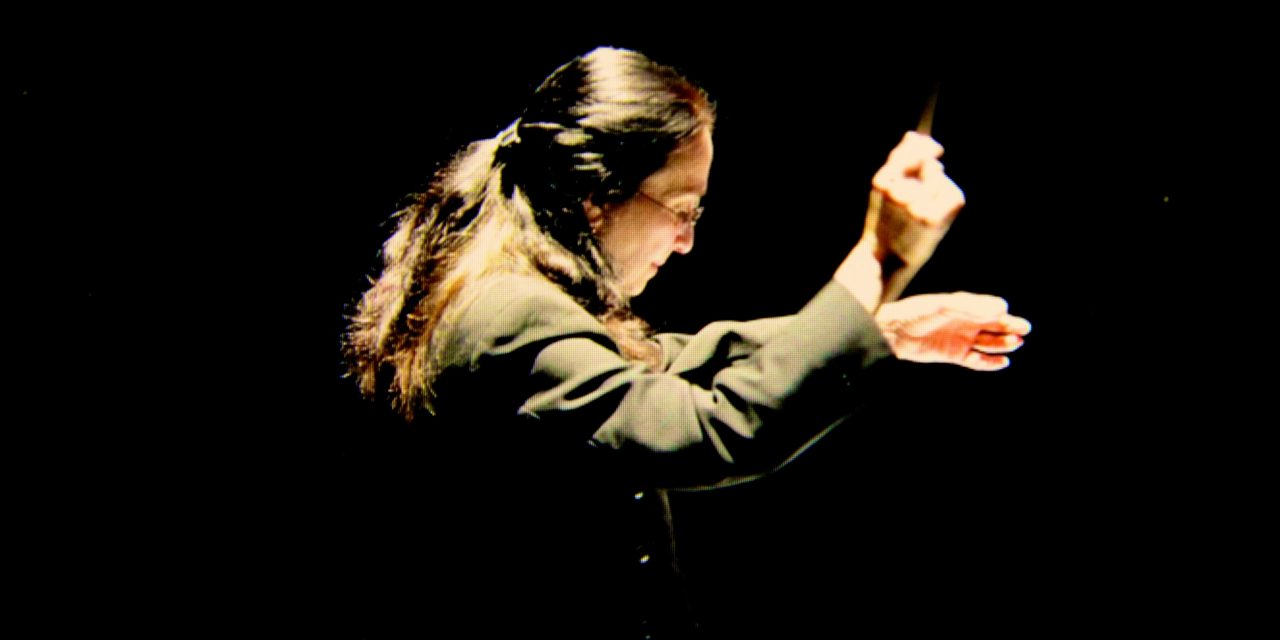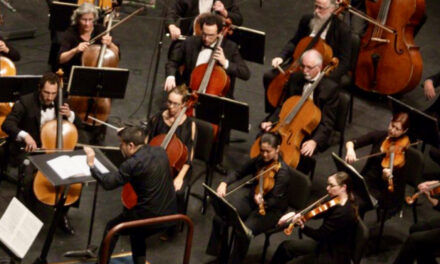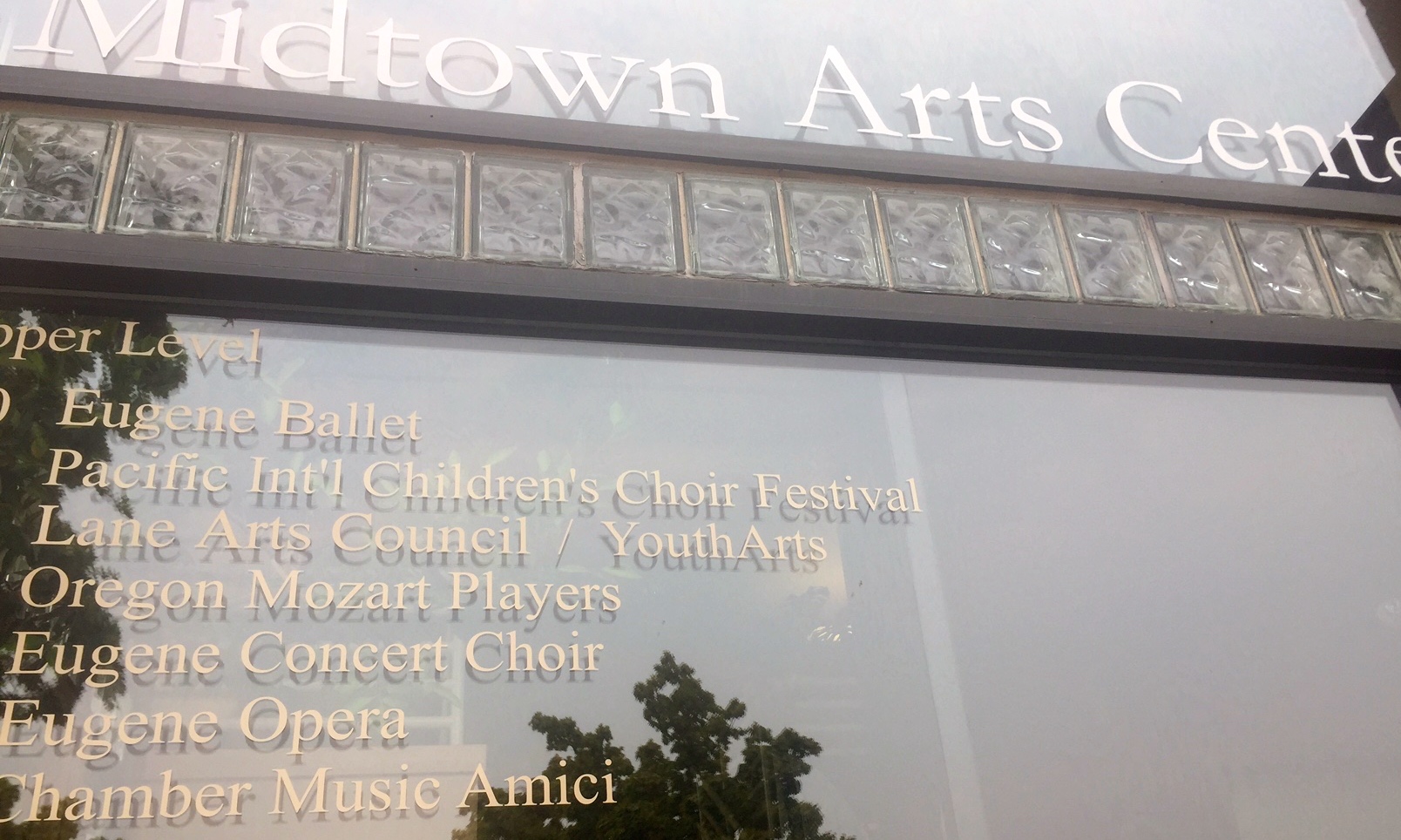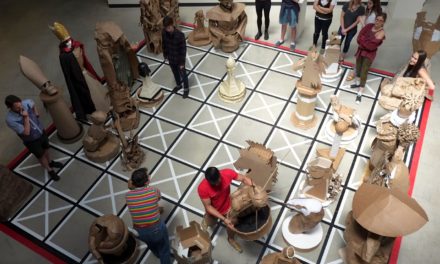(Above: Diane Retallack, founder and director of the Eugene Concert Choir the Eugene Vocal Arts, and Eugene Concert Orchestra)
By Daniel Buckwalter
At its most eloquent, a choir can draw you into a meditative realm, be it with sacred hymns or other ancient texts.
Choral music, my most immediate surround sound while growing up, blends muscular strength with soft and precise grace to create harmonies that will stir the soul. I have joyfully gone on this meditative ride many times as an audience member or a congregate, and on April 10 — Palm Sunday, the start of the Christian faith’s holiest week and a cold spring day that had to be spent indoors — I had my latest ventures.
In the morning, there was the choir at Central Lutheran Church, accompanied by the magnificent Brombaugh organ. In the afternoon, there was the 37-strong Eugene Vocal Arts, accompanied by the Eugene Concert Orchestra.
The morning was spiritual. The afternoon at the Hult Center’s Soreng Theater was wondrous.
Under the direction of Diane Retallack, Eugene Vocal Arts and the Eugene Concert Orchestra — along with five guest soloists — performed Antonio Vivaldi’s Gloria and Wolfgang Amadeus Mozart’s Vespers, two masterpieces that perfectly capture the essence of the Lenten season and deeply appreciated by a nearly packed Soreng Theater.
First up was Gloria, which historians believe Vivaldi composed in 1715 for the choir of the Ospedale della Pietà, an orphanage (or home) for girls who were illegitimate daughters of Venetian noblemen and their mistresses. (Great works have to start somewhere.)
The 12-movement piece has three notable sections that I am particularly fond of. The third movement (“Laudamus te / We praise thee”) features the interplay between the two guest sopranos, Emilie Faiella and Abigail Krawson.
More interaction comes in the fifth movement (“Propter magnam glorian tuam / According to thy great glory”) where Faiella and oboist Cheryl Wefler trade phrases. Still a third interaction is introduced in the seventh movement (“Domine Fili unigenite, Jesu Christe / Lord Jesus Christ, the only begotten Son”), this time with alto guest soloist Erika Rauer and cellist Eric Alterman.
Add to that the bright, almost dance-like elements of the sixth movement (“Domine Deus / Lord God”), and it was a delightful performance heading into intermission.
If the Vivaldi Gloria has a light, almost Baroque quality to it, Mozart’s Vespers carries a more formal element of the church.
A small, but gorgeous lyrical exception is the fifth movement (“Laudate Dominum / Praise the Lord”), which was handled with elegant care by Faiella.
The rest of the six-movement piece — which is dense with text but moves quickly — could easily be transported to a Sunday morning Lutheran or Catholic service. Composed in 1780, I recognize virtually every prayer in Vespers, and each of the six movements ends with The Glory Prayer.
This was probably more religion on a Sunday than I am known for, but Eugene Vocal Arts and the Eugene Concert Orchestra made it worthwhile.
Happy Easter to one and all.








